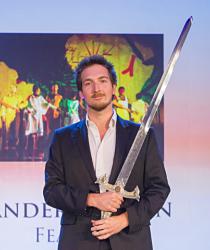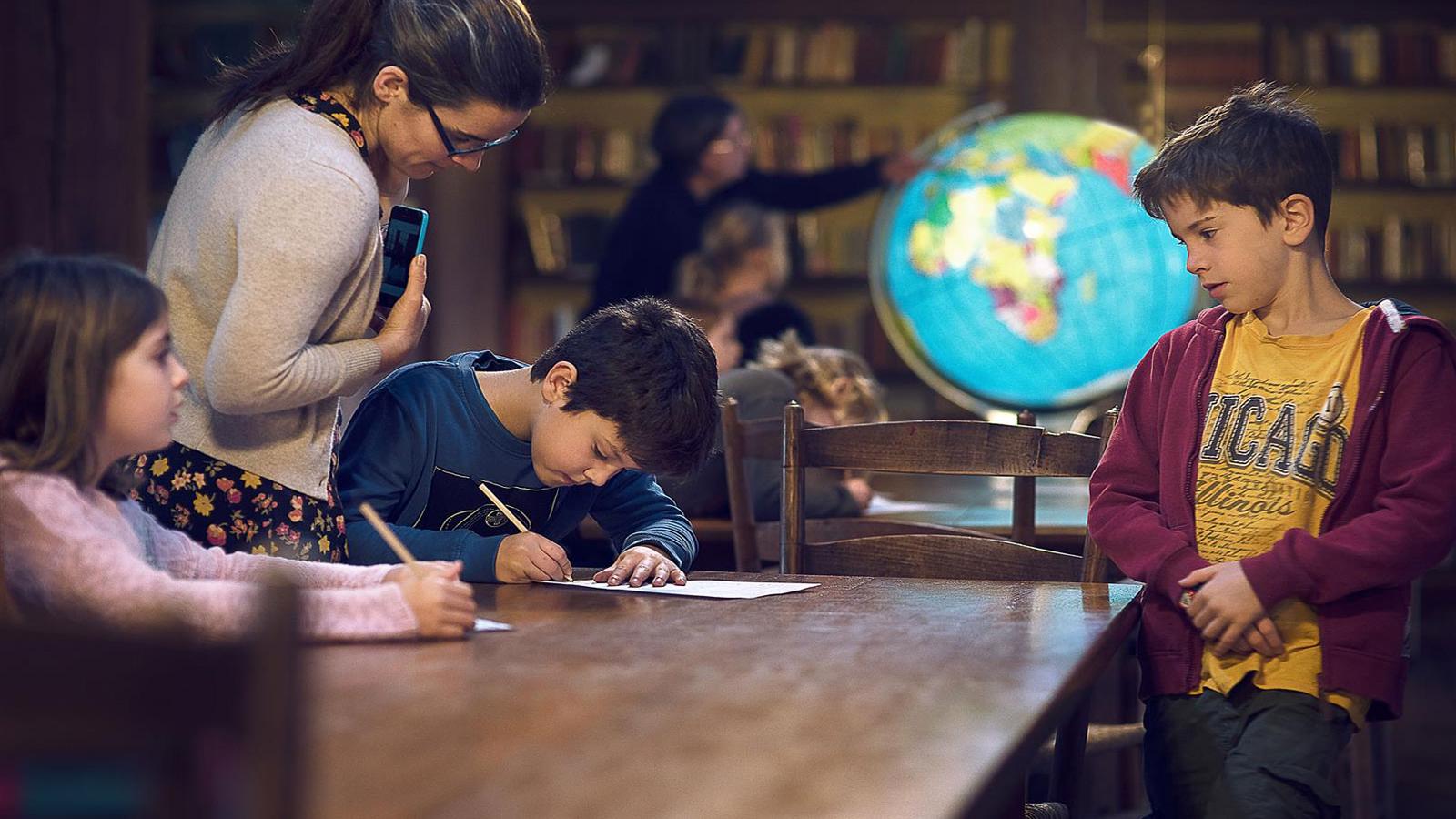
Born in Hong Kong but resident in Petersfield not long afterwards, Lysander Ashton remembers little of his initial days at Dunhurst. “I was a very shy child for a long time,” he says. “It was probably only during A Levels that I gained any sort of degree of self-confidence and I’m still not sure if that was the result of nature or nurture!”
Resolutely uninterested in sport, Lysander instead made the most of the vast range of other activities on offer to him on his journey through the Bedales system. Theatre was one particular source of inspiration: “I did a lot on the design side, where Jo Greenwood was an incredibly creative force,” he recalls, “and I also loved all the outdoor work that you could get into. The opportunities were fantastic; life was so varied at school and I felt that you were genuinely given the chance to become the person that you wanted to be.”
Among Lysander’s contributions to school life was to help establish a sky-diving club, which was overseen by Tobias Hardy. As one of Tobias’s most promising physics students, Lysander already had cause to value Tobias’s influence on his life. “He was a great teacher, very motivating,” Lysander remembers. “I loved science but I would also have liked to mix those studies with some of the arts, which wasn’t always easy at Bedales, where in hindsight, there was a clear separation, with the arts having the greater prominence. I ended up doing just scientific subjects as a result, which is pretty typical of Britain, I would say. You tend to be pigeon-holed as either a scientist or an arts person, never both, which can be a bit frustrating.”
Despite this, Lysander thrived academically, scoring good enough grades to study physics at Bristol University, from where he graduated with a Master’s degree. The plan was now to become an academic but fate had other plans for him. “A friend of mine at Bedales, Marco Sandeman, had always wanted to be a film director and he persuaded me to help him in setting up a company called Irregular Films, where I got completely hooked on the whole business of film and video production,” Lysander explains.
Further experience of working on short films, music promotions and documentaries for such luminaries as Channel 4 and the UK Film Council would lead to an offer from Fifty Nine Productions that would revolutionise Lysander’s professional life. He was now to work on a show, Alex, with one real actor and a large cast of cartoons; this highly innovative use of video technologies fascinated Lysander. With Fifty Nine, where he is now a director, Lysander moved on to work as a designer on productions across a huge range of the arts, including theatrical productions at the National Theatre, The Young Vic and the Lincoln Centre, opera at the Metropolitan Opera, English National Opera and the Royal Opera House, and gallery and installation projects, most notably video-designing the wildly successful David Bowie Is exhibition at the V&A. “The most exciting thing about what I do is how easily I can move from one art form to another,” Lysander reflects. “There don’t have to be any boundaries.”
2012 saw arguably the highest profile event that Lysander will ever work on, the Opening Ceremony for the 2012 London Olympic Games. Here, Lysander was part of the team at Fifty Nine Productions that provided the video design and content, art-directing the video content for all video display systems in the Olympic stadium (including the vast stadium-wide “audience pixel” seat-mounted LED fixtures) and personally led Fifty Nine’s in-house animation team, creating all the projected content shown that night. “Working with a director like Danny Boyle was an absolutely incredible experience,” Lysander observes of that extraordinary night. “It was so exciting to realise that you were a part of something that was being watched by at least half of the world and I have to admit that in the immediate aftermath, it was difficult to know what could possibly follow that.”
Lysander needn’t have worried. The work has continued to flood in from a variety of sources, allowing him to pursue his overriding passion of combining his scientific and artistic abilities into a harmonious whole. The immense variety of his workload is something that he realises would have surprised his Bedalian self. “Oh, the seventeen year-old me would have been amazed,” Lysander confesses. “The capacity that humans have for change is constantly surprising, I find. There will also be plenty more change in the world in which I work. The arts/science crossover will still be there but virtual reality and augmented technology is where we’re heading over the next five years or so.”
So much has been crammed into Lysander’s life in the fifteen years since he left Bedales that he admits that those days in Steep seem to have taken place a lifetime ago. “It does seem like another time,” he agrees. “When I think back to Bedales, I realise how very privileged I was to enjoy such a place. I can’t deny having slightly mixed feelings about it; I’m all too aware that not everyone can go to Bedales and the knowledge of that basic educational inequality does make me uncomfortable at times. There’s no doubt that going to school at Bedales was the most phenomenal experience for me.”
Lysander Ashton was interviewed by James Fairweather in March 2016.
